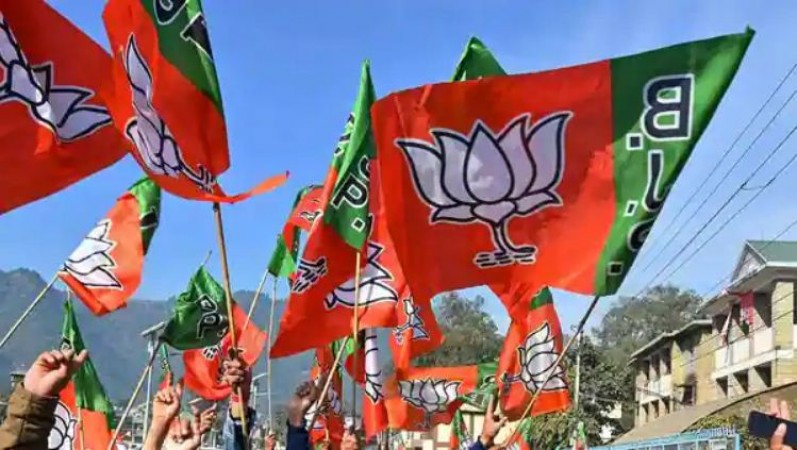
New Delhi: The Bharatiya Janata Party is the world's most important foreign political party and it may also be the least understood, read an an opinion piece in the Wall Street Journal authored by Walter Russell Mead.
It's significant because the BJP, which took control of Indian politics in 2014, secured a second term in 2019 and seems like to win again in 2024, at a time when both Japan and India are developing as major economic powers and serving as the cornerstone of American policy in the Indo-Pacific. The BJP will be in charge for the foreseeable future in a nation without which American efforts to counter rising Chinese strength are probably going to fall short.
Because it emerged from a political and cultural past that most non-Indians are unfamiliar with, the BJP is not well understood. The BJP's electoral supremacy is a reflection of the accomplishment of a formerly hidden and marginal social movement for national rebirth that was founded on the efforts of many generations of social activists and thinkers to forge a uniquely Hindu route to modernity. The BJP, like the Muslim Brotherhood, rejects many of the ideals and principles of Western liberalism while still embracing many fundamental aspects of modernity. Similar to the Chinese Communist Party, the BJP wants to turn India, a country of more than a billion people, into a superpower. Similar to the Likud Party in Israel, the BJP channels the ire of individuals who have been marginalised and reviled by a cosmopolitan, Western-focused cultural and political elite while maintaining a fundamentally pro-market economic attitude.
While analysing Narendra Modi's India, American observers, especially those of the left-liberal school, frequently ask why it isn't more like Denmark. These worries aren't entirely unfounded. Critics of the ruling alliance in the media may experience harassment or worse. Religious minorities that clash with India's resurgent Hindu pride under the BJP warn of mob violence and mention unfriendly official actions like broadly worded anticonversion laws as well as sporadic outbursts of mob violence. The Rashtriya Swayamsevak Sangh, or RSS, is a powerful nationalist Hindu group with close ties to the BJP leadership.
Yet, India is a multifaceted country, and there are other tales. The northeastern states of India are home to some of the BJP's most notable recent political victories. Shia Muslims are a significant source of support for the BJP government in Uttar Pradesh, a state with a population of around 200 million. The struggle against caste prejudice has seen a substantial contribution from RSS volunteers.
I am sure that Americans and Westerners in general need to engage much more closely with a complicated and powerful organisation after a thorough series of meetings with senior BJP and RSS leaders as well as some of their detractors. The RSS has grown from a small group of primarily outcast intellectuals and religious enthusiasts to what is now arguably the most potent civil society organisation on earth. It has been successful in forming the political consciousness and channelling the energies of hundreds of millions of people through its rural and urban development programmes, religious education and revival efforts, and civic activism, all of which are staffed by thousands of volunteers from all walks of life.
The movement appears to be at a turning point. We spoke about attracting business and development to his state when I met Yogi Adityanath, a Hindu monk who is currently the chief minister of Uttar Pradesh. He is regarded as one of the movement's most radical voices and is occasionally mentioned as a potential replacement for Prime Minister Modi, who is 72 years old. Parallel to this, Mohan Bhagwat, the spiritual head of the RSS, discussed with me the need to hasten India's economic development and rejected the notion that religious minorities should face prejudice or lose their civil rights.
It is impossible to predict how these remarks made by senior authorities to a foreign journalist will filter down to the grassroots. The leadership of a formerly marginalised movement, however, seems to want to present itself as the natural establishment of a rising force and seeks to engage meaningfully and productively with the outside world without losing touch with its social and political base.
Americans cannot afford to decline the opportunity to communicate with the BJP and RSS. The United States needs India as a political and economic ally as tensions with China escalate. Business executives and investors looking to do business with India need to understand the ideology and development of the Hindu nationalist movement just as much as diplomats and policymakers looking to solidify the strategic partnership.